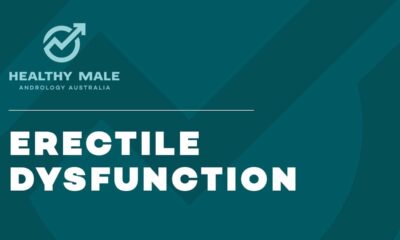Health
Sugar-sweetened beverages cause kidney, heart diseases, FG warns

Sugar-sweetened beverages cause kidney, heart diseases, FG warns
The federal government has discouraged the consumption of sugar-sweetened beverages (SSB) because it is capable of causing diabetes and other non-communicable diseases (NCDs).
Ali Pate, the Coordinating Minister of Health and Social Welfare, spoke in Abuja on Tuesday at the National Conference on Sugar-Sweetened Beverages (SSB) Tax and Health Financing in Nigeria.
The minister, who spoke on the conference theme “Health Tax as a Recipe for Improved Healthcare Financing”, was represented by Olubunmi Aribeana, the health ministry’s director of the food and drug services department.
“By discouraging the consumption of sugar-laden beverages, we aim to reduce the prevalence of obesity and diabetes and, in turn, alleviate the financial burden on our healthcare system,” said Mr Pate.
He recalled that the federal government introduced the SSB tax in 2021 to reduce its consumption and the prevalence of obesity, diabetes and other related diseases.
“Sugar-sweetened beverages (SSBs) are drinks that contain added natural sweeteners, such as table sugar, high-fructose corn syrup, or fruit juice concentrates, all of which have similar metabolic effects.
“The consumption of SSBs has been linked to numerous health risks, including obesity, heart disease, weight gain, type 2 diabetes, kidney diseases, non-alcoholic liver disease, tooth decay, cavities, and gout.
“The health burden of SSB consumption is particularly significant in low- and middle-income countries, where rates of obesity and related health problems are on the rise,” Mr Pate explained.
The minister said the country faced a growing health crisis with SSB-related diseases such as obesity and diabetes, adding that the associated healthcare costs were escalating at an alarming rate.
READ ALSO:
- Two internet fraudsters jailed 4 years in Port Harcourt
- Bank hacking kingpin, Chima Nwigwe, three others arrested in Abuja
- Security agencies not sharing information – Minister laments
“Recent reviews and meta-analyses by the International Diabetes Foundation (IDF) show that as of 2021, over 3.6 million people are diabetic, with 53 per cent of these citizens undiagnosed, and this number is expected to rise to about five million by the year 2030.
“The cost of treating diabetes per person has surged from an average of N60,000 in 2011 to N800,000 in 2021, and it is projected to exceed N1 Million by 2030,” Mr Pate said.
According to him, the goal of the SSB tax is to reduce the consumption of these unhealthy beverages, ultimately preventing obesity and its related diseases.
The minister called on the food and beverage industry, healthcare providers, civil society organisations and other relevant stakeholders to strengthen their collaboration to promote healthier lifestyles and ensure the sustainability of the nation’s health systems.
He said in line with the government’s vision, the 2023 National Policy on Food Safety and Quality and its Implementation Plan also prioritised the consumption of healthy foods.
According to him, the plan specifically expects the government at every level to develop strategies for reducing the consumption of sugar, alcohol, and sodium and eliminating trans-fatty acids (TFAs) in Nigerian diets.
The minister restated the federal government’s commitment to ensuring the food supply chain supports the health and well-being of the population by minimising the risks associated with poor dietary choices.
In his remarks, Akinbode Oluwafemi, executive director, Corporate Accountability and Public Participation Africa (CAPPA), said the current SSB tax that imposed an excise duty of N10 per litre on all non-alcoholic and sweetened beverages did not meet global standards.
Mr Oluwafemi said, “At N10 per litre, Nigeria’s current tax on SSBs falls short of the World Health Organisation’s recommendation and global best practice of a minimum of 20 per cent of total retail prices.
“In fact, the impact of our current tax rate has been largely eroded by escalating inflationary pressures, rendering it nearly ineffective, hence the need for a re-evaluation,” he stated.
Sugar-sweetened beverages cause kidney, heart diseases, FG warns
(NAN)
Health
NAFDAC destroys N120bn ‘merchants of death’ fake products

NAFDAC destroys N120bn ‘merchants of death’ fake products
The National Agency for Food and Drug Administration and Control (NAFDAC) announced that it destroyed over ₦120bn worth of seized products between July and December 2024 across the six geopolitical zones and the Federal Capital Territory.
NAFDAC also reassured Nigerians that measures are in place to safeguard their health before, during, and after the yuletide season.
This was disclosed in the Christmas message from NAFDAC’s Director-General, Prof. Mojisola Adeyeye, as contained in a statement signed by the agency’s Resident Media Consultant, Sayo Akintola, on Sunday.
Adeyeye emphasised the importance of eating safely during the Yuletide period and advised Nigerians to purchase food and drinks from outlets with identifiable addresses to facilitate the agency’s tracking processes.
She warned against eating pharmaceuticals and packaged food products that do not have NAFDAC registration numbers, noting that exceptionally low-cost products are likely to be contaminated.
READ ALSO:
- Lagos govt nightclubs, worship centres must obtain permit for amplified sound
- Alleged missing N180m: It’s a prank, Singer Dammy Krane says
- Inter Milan crush Cagliari 3-0 to top Serie A
She also revealed that the agency’s Investigation and Enforcement Directorate is continuing to remove substandard and fraudulent pharmaceuticals, as well as unwholesome food items, from marketplaces around the country.
“Officers from the Investigation and Enforcement, Pharmacovigilance, and Post-Marketing Surveillance Directorates are in the field confiscating falsified medicines, fake wines and drinks, and unwholesome food products that could jeopardise public health during the festive season,” she said.
In December 2024, the agency destroyed expired and unregistered drugs worth ₦11bn in Ibadan and seized counterfeit alcoholic beverages and medicines worth billions of naira in Lagos.
In Nasarawa State, the agency uncovered a factory packaging counterfeit rice and confiscated over 1,600 bags worth ₦5bn.
Adeyeye emphasised NAFDAC’s commitment to ensuring that the Nigerian market only contains safe, high-quality food and medicines.
She warned that the agency would step up efforts to put counterfeiters out of business, branding them as “merchants of death.”
NAFDAC destroys N120bn ‘merchants of death’ fake products
Health
NAFDAC destroys N5bn fake, expired products in Aba

NAFDAC destroys N5bn fake, expired products in Aba
The National Agency for Food and Drug Administration and Control (NAFDAC) has shut down 150 shops at Eziukwu Market in Abia over fake and expired products Worth N5 billion.
The agency disclosed this in a statement on Wednesday on X.
NAFDAC said the shops were shut during a two-day operation on December 16 and 17, while products valued at N5billion were destroyed at the market.
The director of the South-East zone, Martins Iluyomade, expressed dismay at the continued illegal activities despite a previous undertaking signed by market leaders in December 2023 to expose counterfeiters.
READ ALSO:
- Speaker Abbas to Tinubu: Your reforms have disrupted status quo
- Abuja demolition: Soldiers attack FCTA officials, seize vehicles
- Onion price rises over 100%, flooding, inflation blamed
According to the statement, Mr Iluyomade described the market as a hub for counterfeit and substandard products.
“Our team uncovered a large-scale production and distribution of fake and expired goods, including beverages, carbonated drinks, wines, spirits, and vegetable oils.
“Revalidated food items such as milk, yoghurt, noodles among others were also destroyed,” the statement said.
It reaffirmed NAFDAC zero tolerance for such practices and emphasised its unwavering commitment to safeguarding public health while working toward a permanent solution to the problem of counterfeiting in the market
NAFDAC destroys N5bn fake, expired products in Aba
(NAN)
Health
Eating fish regularly minimises risk of incurable hearing condition – Study

Eating fish regularly minimises risk of incurable hearing condition – Study
Tinnitus is the sound of ringing in the ears. It may also be described as roaring, buzzing, hissing, or clicking inside the head. The sounds may come and go. Or they may be ongoing. The sounds range in severity from a mild distraction to a disabling condition and may manifest with buzzing, hissing, or clicking inside the head.
The sound may happen in one or both ears and may have different tones. A team from Brigham and Women’s Hospital in Boston studied 73,000 individuals to understand how common this disorder is, which affects millions with a constant ringing in their ears.
Over a span of 30 years, those who consumed more than two servings of fish weekly had nearly 25 percent lower odds of getting tinnitus compared to those who seldom or never ate fish. Even eating just one serving a week resulted in a 13 percent reduced risk.
Certain types of fish, like tuna, light-fleshed varieties such as cod or halibut, and shellfish, were linked to a reduced risk, while darker fish like salmon and swordfish seemed to increase the risk.
READ ALSO:
- No litigation delaying Lekki int’l airport construction, says Lagos govt
- Ondo: Jilted husband kills self, sets wife ablaze
- Military sends Special Operations Brigade to quash Lakurawa terrorists
Interestingly, fish oil supplements, known for their benefits to heart, brain, and joint health, were also connected to a higher risk of tinnitus. It’s estimated that tinnitus is diagnosed in almost 1 in 6 persons.
While age-related hearing loss, ear injuries, and circulation issues are known to contribute to tinnitus, the exact cause remains unclear. Previous studies have suggested that dietary factors, such as high levels of calcium, iron, and fat, might heighten the risk. However, this new research is the first to analyse data over such a lengthy period.
Past findings have also shown that seafood can lower the risk of hearing loss, with one study suggesting that increased fish consumption might reduce hearing issues by up to 20 percent. Scientists believe that the omega-3 fatty acids in fish could protect inner ear cells or reduce inflammation caused by loud sounds, chemicals, or infections.
The Boston team’s investigation, based on a database of US nurses, aims to shed light on the connection between fish consumption and tinnitus, potentially aiding future patients. The authors of the study expressed hope that identifying factors that can be changed might help in preventing tinnitus and guiding targeted treatments.
Eating fish regularly minimises risk of incurable hearing condition – Study
-

 Auto2 days ago
Auto2 days agoLSM MD extols founder’s qualities after latter posthumous industry award
-

 Entertainment2 days ago
Entertainment2 days agoMultiChoice announces free access to all DSTV channels for 3 days
-

 News2 days ago
News2 days agoNigeria Customs Service begins 2025 recruitment [How to apply]
-

 metro3 days ago
metro3 days agoJigawa State governor loses son 24 hours after mother’s death
-

 metro2 days ago
metro2 days agoHeavy security in Ilesa as ex-Osun deputy gov emerges new Owa-Obokun
-

 metro2 days ago
metro2 days agoLagos Imam to Tinubu: You haven’t disappointed us
-

 metro2 days ago
metro2 days agoDangote, Tinubu, Lookman named among 100 most influential Africans in 2024 (Full list)
-

 Sports2 days ago
Sports2 days agoRonaldo, Vinicius, Yamal win big at 2024 Globe Soccer Awards [Full list of winners]













